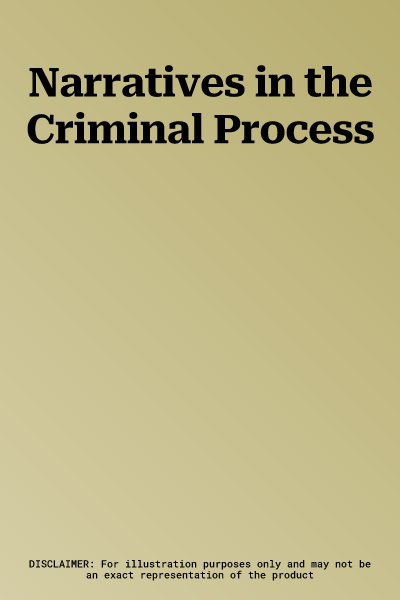Narratives in the Criminal ProcessPaperback, 1 June 2021

Qty
1
Turbo
Ships in 2 - 3 days
Only 5 left
Free Delivery
Cash on Delivery
15 Days
Free Returns
Secure Checkout

Part of Series
Schriftenreihe Des Kate Hamburger Kollegs 'Recht ALS Kultur'
Print Length
384 pages
Language
German
Publisher
Verlag Vittorio Klostermann
Date Published
1 Jun 2021
ISBN-10
3465045556
ISBN-13
9783465045557
Description
Product Details
Book Format:
Paperback
Country of Origin:
GB
Date Published:
1 June 2021
ISBN-10:
3465045556
ISBN-13:
9783465045557
Language:
German
Location:
Frankfurt
Pages:
384
Publisher:
Weight:
1397.06 gm